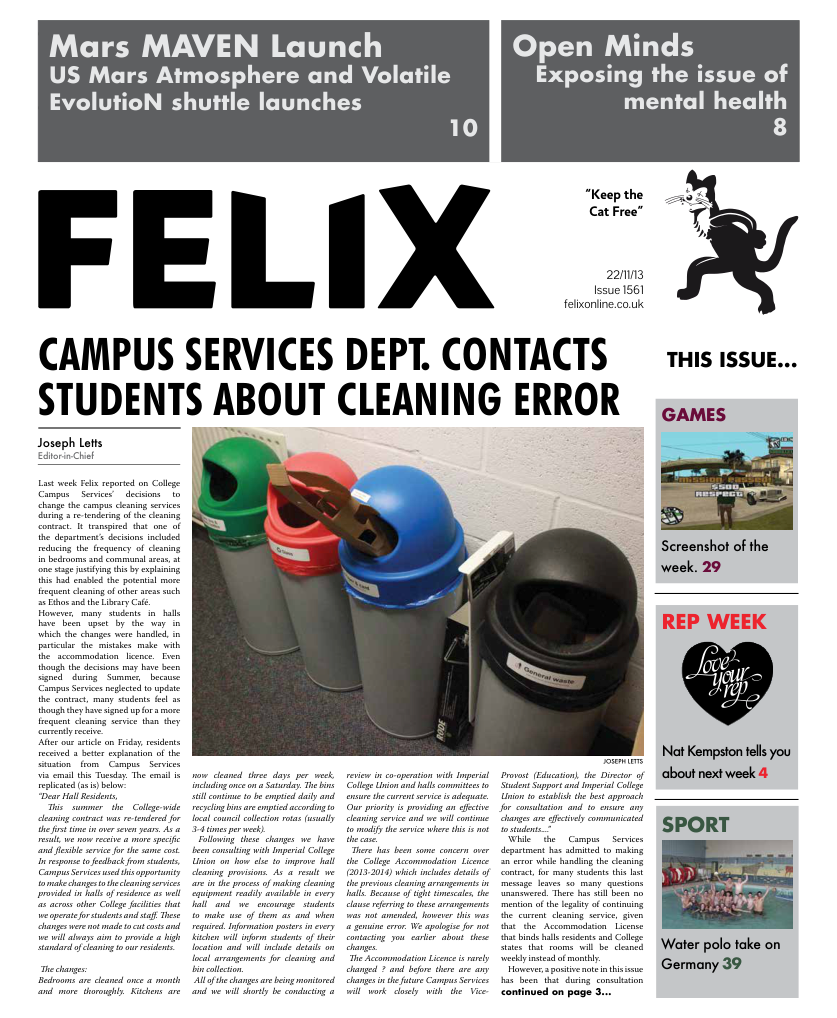Synthetic alcohol does this - The end of the hangover?
For those reading this hungover in bed after that “quick pint” on a Thursday evening turned into a free for all, we have good news. It seems that our very own Professor Nutt, previous government advisor and keen advocate of drug legalisation, has finally identified candidate molecules...
For those reading this hungover in bed after that “quick pint” on a Thursday evening turned into a free for all, we have good news. It seems that our very own Professor Nutt, previous government advisor and keen advocate of drug legalisation, has finally identified candidate molecules that can imitate all the good parts of drinking, without that dreaded feeling the next day. The molecule can hopefully reproduce the pleasurable effects of alcohol, but, with a lower toxicity, may keep the hangovers and health risks associated with drinking at bay. Alcohol acts as a depressant on the central nervous system, and a multitude of receptors, including those that respond to the neurotransmitter GABA, can be modulated in activity by ethanol. GABA acts as an inhibitory molecule in vertebrates when binding to transmembrane receptors on the neurons of the brain, which in turn effects the transmission of nerve impulses and can result in feeling more relaxed or unfazed. Ethanol is rather cavalier in its actions, however; it targets a lot of other cellular receptors non-specifically too, so has a large number of routes in which it can modulate its effects. Being able to pinpoint those interactions that deliver the desirable effects of ethanol consumption is key, and it may be that GABA is the answer. This alcohol substitute would target GABA receptors very specifically to ensure the positive effects alcohol can have are sustained whilst the undesirable side effects are reduced. These include the immediate effects such as loss of co-ordination, aggression and memory loss, but also the after effects, such as the hangover you may indeed be suffering right now. It seems too good to be true, right? It seems that Professor Nutt is still discussing his top secret synthetic alcohol substitute use with investors, but is worried that the drug may be legislated too heavily by the government. This is somewhat of a touchy issue that has caused controversy concerning Nutt in the past, with his recent paper in Nature this year urging the government to weaken the current legislation surrounding psychotics falling on deaf ears. Although the alteration of legislation surrounding drugs such as MDMA and marijuana is an understandably more complex and controversial issue, hopefully such complications will not surround the possible legislation of this new synthetic alcohol substitute if the benefits discussed are a tangible reality. Therefore it seems we can only sit and wait for the holy grail of student satisfaction for now. Unfortunately, for those that are still mulling over last night’s antics whilst hiding away from the world, this solution isn’t going to be getting you to your 9am lectures in time today. Right now, it just might be better to get some toast and tea and fight off that hangover the traditional way.






